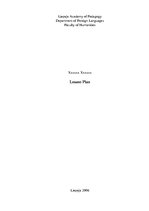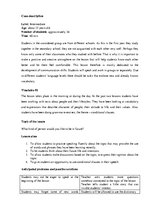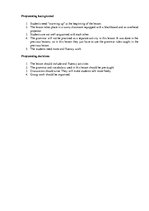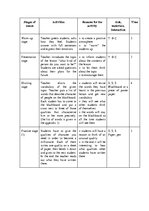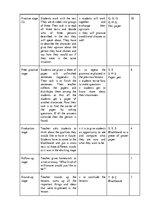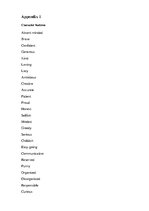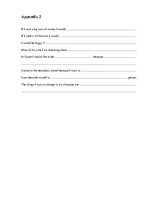-
Lesson Plan
Class description
Level: Intermediate
Age: about 15 years old
Number of students: approximately 16
Time: 40 min
Students in the considered group are from different schools. As this is the first year they study together in the secondary school, they are not acquainted with each other very well. Perhaps they know only some of their classmates who they studied with before. That is why it is important to make a positive and creative atmosphere on the lesson that will help students know each other better and let them feel comfortable. This lesson therefore is mainly dedicated to the development of communication skills. Students will speak and work in groups or separately. Due to different students’ language levels there should be tasks that enclose new and already known vocabulary.
Timetable fit
The lesson takes place in the morning or during the day. In the past two lessons students have been working with texts about people and their lifestyles. They have been looking at vocabulary and expressions that describe character of people, their attitude to life, and their values. Also, students have been doing grammar exercises, the theme – conditional clauses.
Topic of the lesson
What kind of person would you like to be in future?
Lesson aims
1. To allow students to practise speaking fluently about the topic that may provoke the use of words and phrases they have been learning recently.
2. To let students think about their future life and intentions.
3. To allow students make discussions based on the topic; to express their opinion about the topic.
4. To give students an opportunity to use conditional clauses in their speech.
…
Angļu valodas stundas plāns Kvalifikācijas eksāmenam sagatavotais stundas plāns kopā ar prezentāciju Power Pointā un dažiem uzdevumiem.









